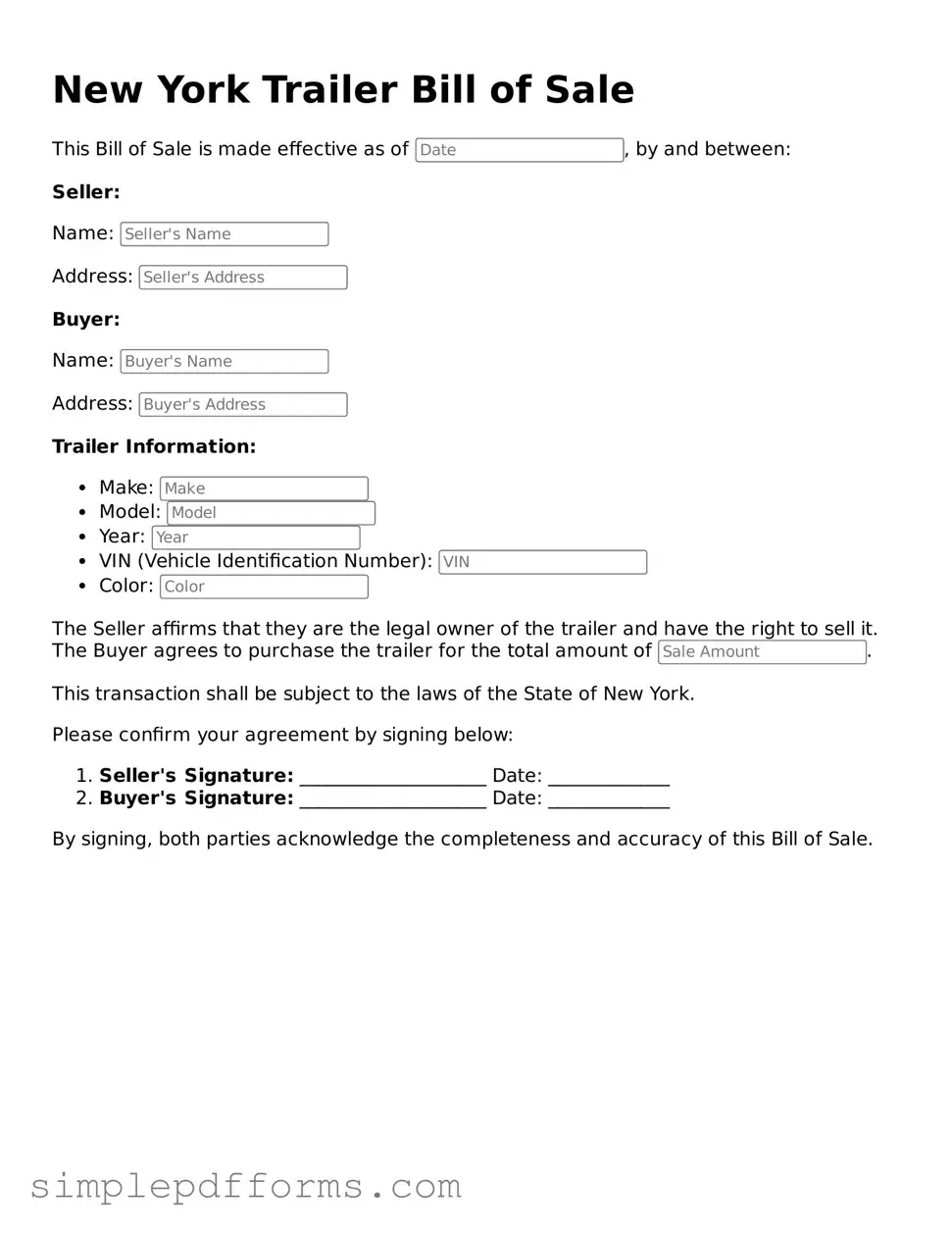Attorney-Verified Trailer Bill of Sale Document for New York State
The New York Trailer Bill of Sale form serves as a legal document that facilitates the transfer of ownership for a trailer in New York State. This form is essential for both buyers and sellers, ensuring that all necessary details are documented accurately. Understanding its importance can streamline the buying process and protect the interests of both parties involved.
Open Trailer Bill of Sale Editor Now

Attorney-Verified Trailer Bill of Sale Document for New York State
Open Trailer Bill of Sale Editor Now

Open Trailer Bill of Sale Editor Now
or
Get Trailer Bill of Sale PDF Form
Your form is waiting for completion
Complete Trailer Bill of Sale online in minutes with ease.